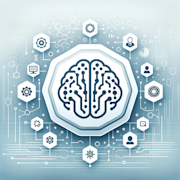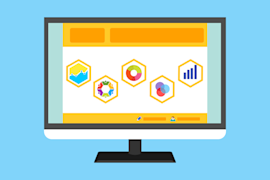Machine Learning: what to expect for 2019
Technology continues to develop, expand and grow with all aspects of it powering our lives. Artificial Intelligence, now often referred to as machine learning or deep learning, has been trending for the past few years. As AI makes its way deep into the cultural consciousness, it will eventually become as normal as the internet, television, and even electricity. So, when it comes to AI technological breakthroughs occurring over the next few years, what can we expect?
AI-driven machines are coming in hot in 2019. Thus, it’s important to know what role this will play in relation to creating and planning aspects of our daily life as well as interacting with human beings. Many are concerned that integrating machine learning into daily existence will lead to job loss and unrest. We’re here to offer a lowdown on what we’re predicting may happen.
Machine Learning in 2019: what to expect
The smart product and shared networks
In the Western world, most of us have accepted the idea of the smart product. First, it was mobile phones, then televisions, then every household device, then, of course, the house itself, car included. Machine learning is working towards turning every manufactured product into one that can connect and merge with other smart products around them. This means moving towards a trend in which people no longer pride themselves on owning things, but rather, on belonging to something.
Currently, we're seeing this trend play out in areas which involve subscription-based ownership, driven by data captured from our smart products. This is evident in marketplaces including coworking spaces, rental housing, rental clothing, and pet care networks. Belonging to a shared network has much less to do with who you are, but instead how AI technology is being utilized to capture information and change the way we interact with the world around us. Services similar to the aforementioned will start developing in other new business models, fields and markets.
Machine Learning across all fields
Up to this point, the possibilities of machine learning have largely been employed by tech companies including Apple, Amazon, Google, and Facebook. In the past, non-tech companies have veered away from AI, but not anymore. Now, businesses across all markets are implementing an AI strategy to focus their efforts to solve real-world problems as well as gaining a deeper understanding of their customer.
Many companies have already integrated digital technologies into their business model in one way or another and this has now spread to identifying places where smart learning, or AI, can be utilized. Smart learning will begin to be integrated into business plans as a place to generate new revenue streams. What this means is that we’ll see a shift towards AI-driven businesses, rather than just AI-strategies. In 2019, non-tech companies are realizing how much of an asset and investment AI truly is, especially to transform the way a business is run (for the better).
AI further integrated into day-to-day life
As mentioned, a popular understanding of the possibilities of machine learning is already shifting. Right now, it’s quite common to recognize AI in our devices in the form of digital assistants like Siri and Alexa. The usage of these will only increase and will be further integrated into daily and practical affairs. This will include the use of AI as productivity tools focused on shopping, cooking, cleaning, patient-care, energy-saving initiatives, and so forth.
However, the average person understands machine learning on the surface level and this rarely moves beyond the underlying statistical algorithm. Thus, for the average consumer, there may still be many ways in which machine learning fails to live up to its full potential. We’re still a few years shy of what it will take to truly understand the potentials of AI.
Intelligent apps
In many to almost every case, machine learning is about improving something. AI is already part of many mobile applications, but as we move through 2019, we’ll see a shift towards half or more employing machine learning as part of the functionality, or implemented into the backend of the app. Some examples of intelligent apps that we already use include navigation apps that are able to clearly calculate a route or e-commerce apps that will suggest products based on previous searches and purchases.
Consider an area of your life where you believe things might need a little improvement, moving through this year you're likely to find an app which has integrated machine learning as a result of this.
Privacy-enabled AI
It's still difficult to understand exactly how machine learning works, let alone trust it. However, it’s crucial for AI to be both understood and trusted in order for it to reach its full potential, especially when it comes to interacting with those who live outside of the tech world. In a nutshell, AI is collecting our data and it’s normal for anyone to wonder the who, what, wheres and whys. Not only this, but AI technologies are making decisions when it comes to things that affect our daily lives. The ways in which this technology works and draws connections are not obvious and thus, suspicious.
Aside from reassuring the public regarding how machine learning is used, businesses employing AI will also need to be open and honest about data bias and algorithms. This means that in 2019, transparency in relation to AI will be necessary for the average consumer to completely embrace it.



